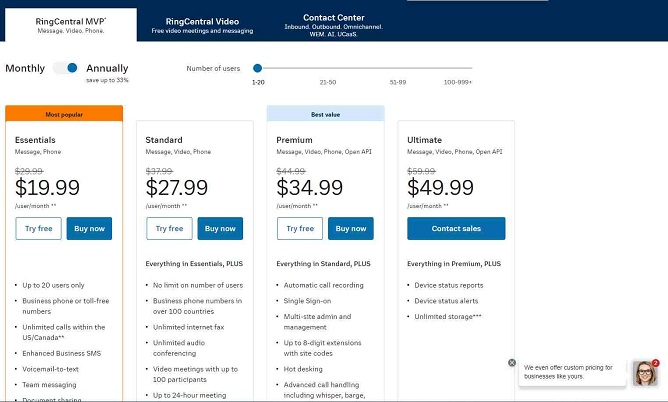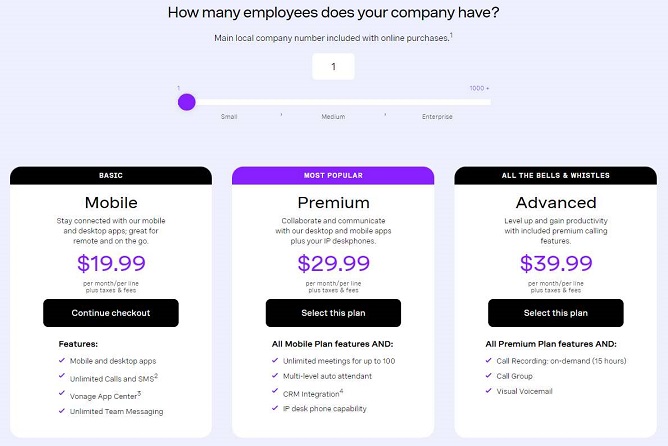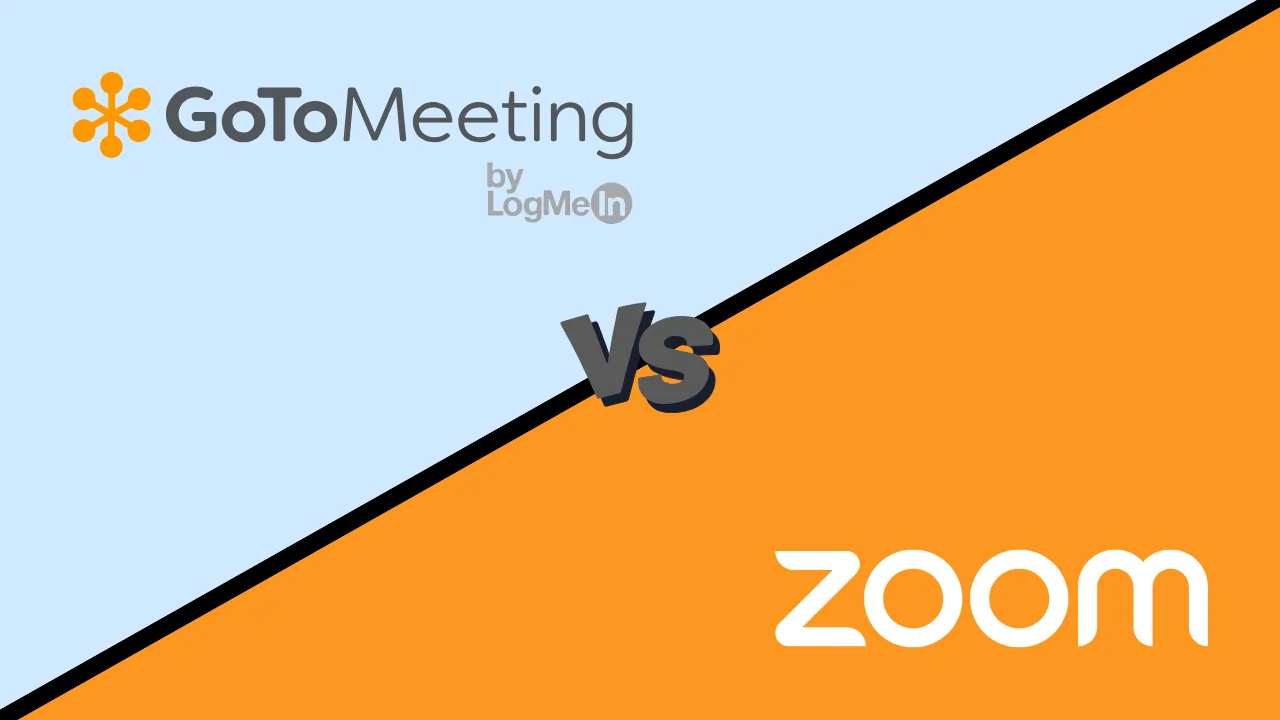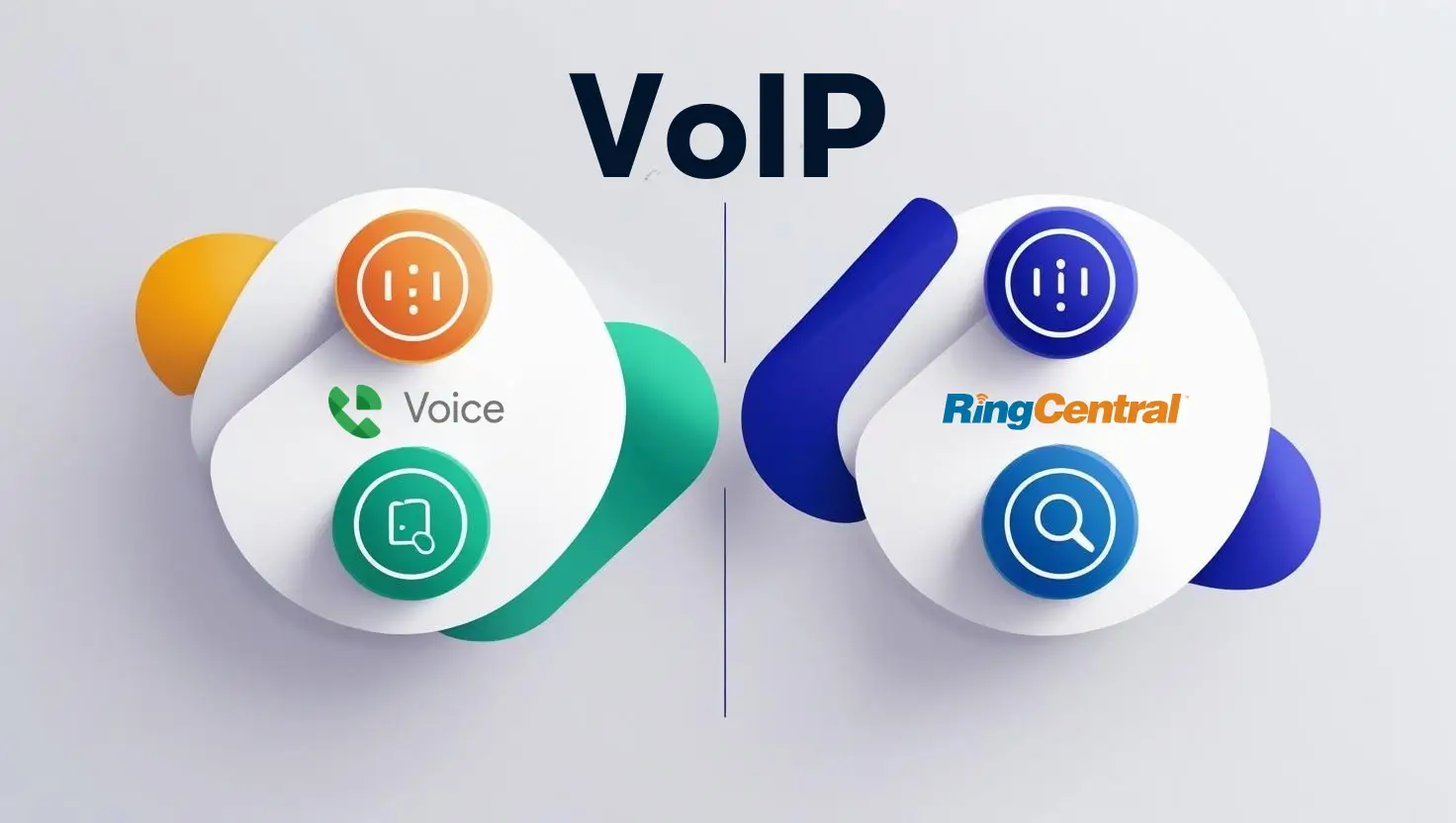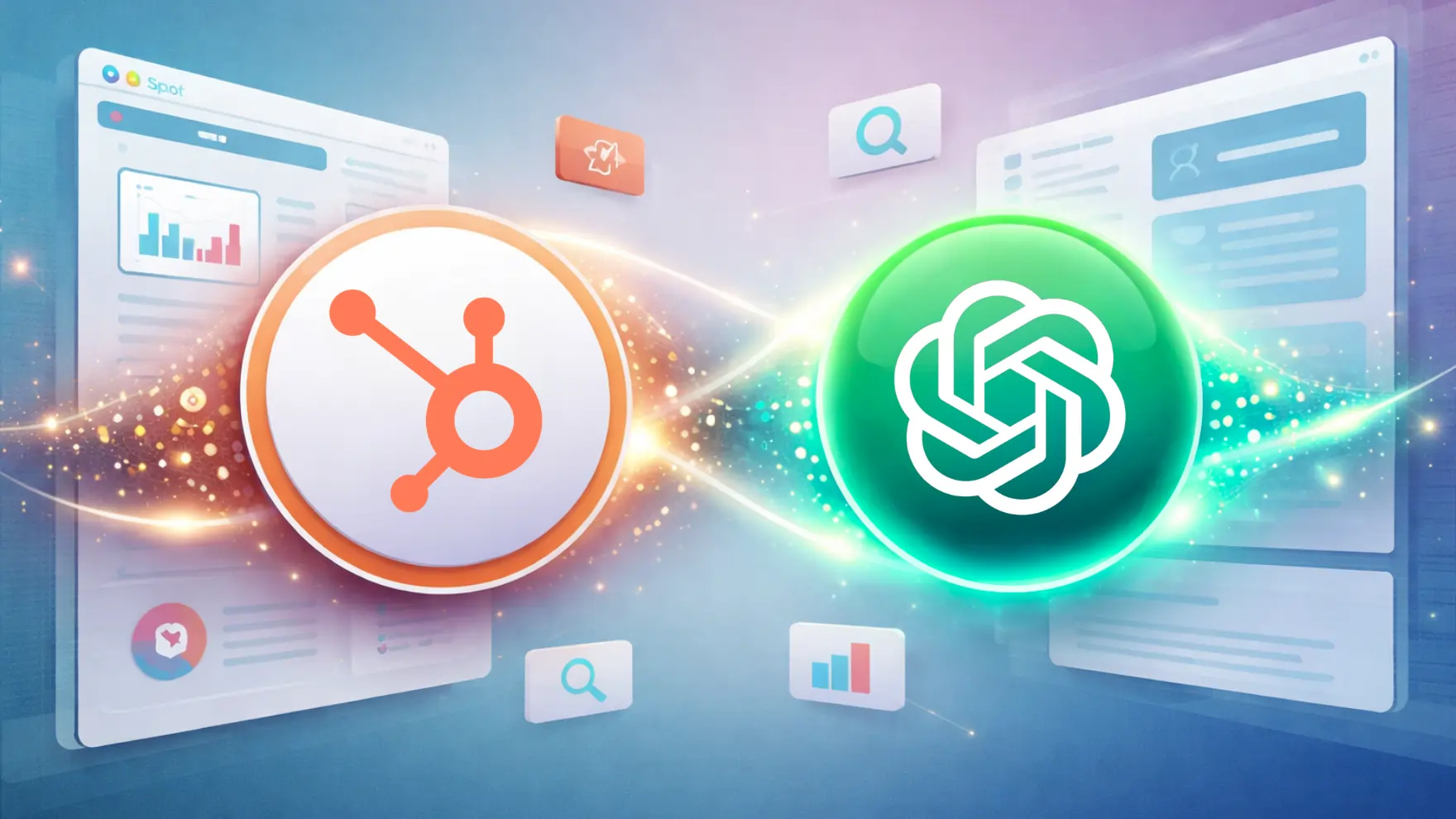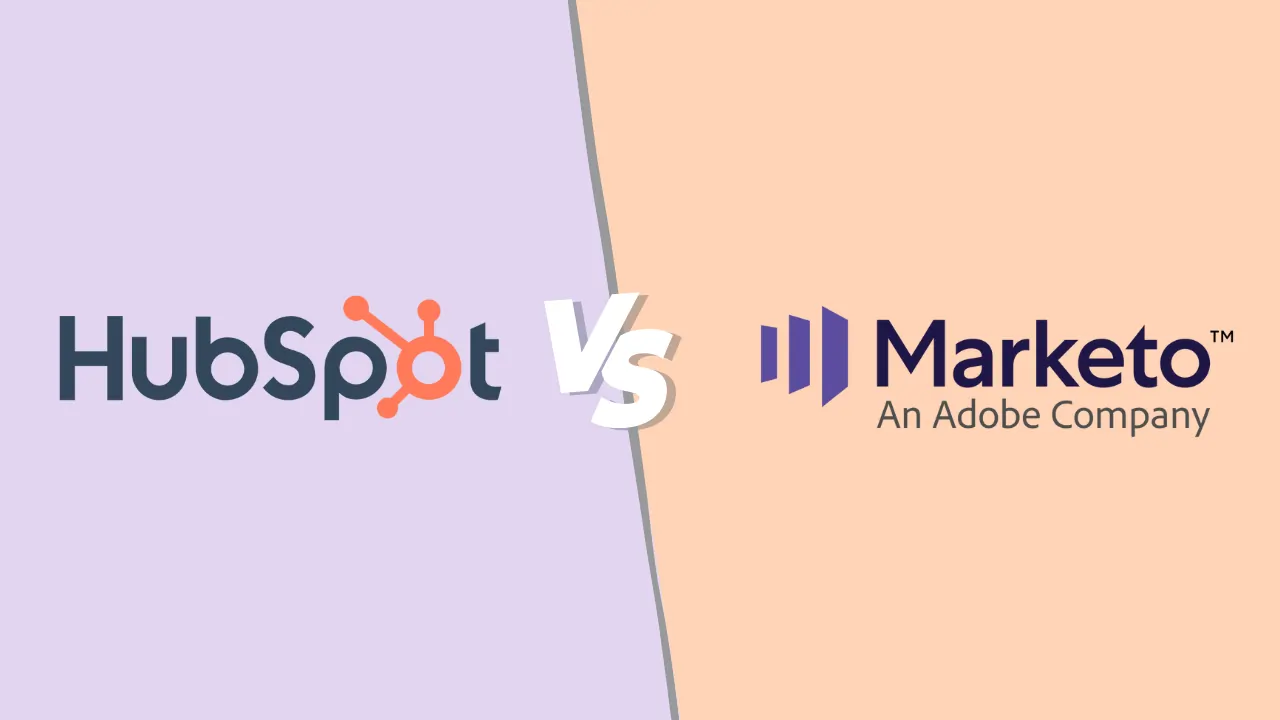RingCentral vs. Vonage: Which VoIP Provider Is Best for Businesses in 2026?
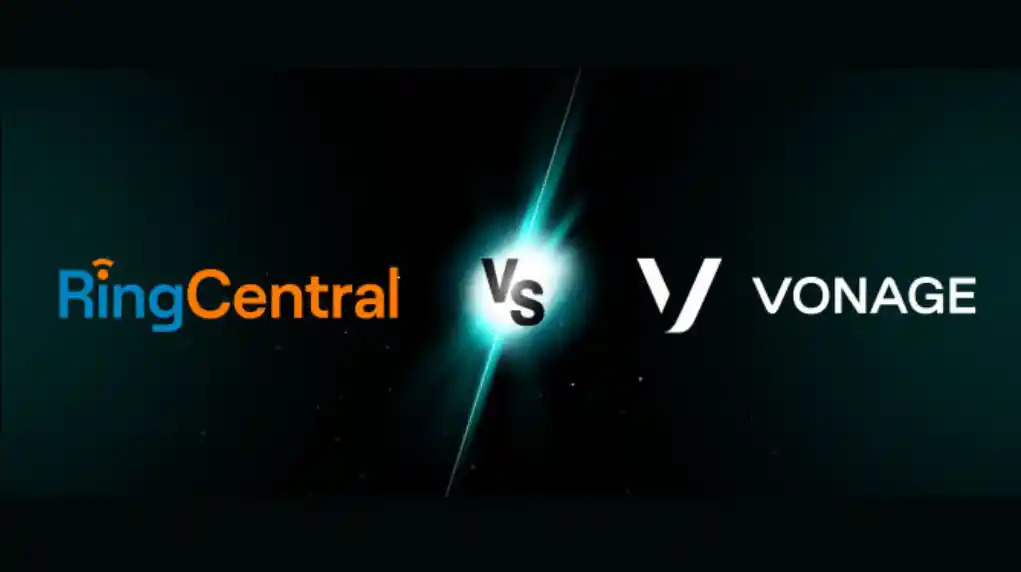
Choosing the right VoIP provider is no longer just about phone service – it’s about how your business communicates, collaborates, and serves customers across every channel. In 2026, two names still dominate this space: RingCentral and Vonage.
Both companies have evolved far beyond basic VoIP. RingCentral leans into all-in-one UCaaS platforms with integrated video, messaging, and global telephony. Vonage, on the other hand, has doubled down on flexible APIs and advanced contact center solutions that power customer experience at scale.
With over two decades of experience in telecom and SMB software, I’ll break down how these two stack up today – including features, pricing, customer experience, and pros/cons – so you can make the right choice for your business.
Key Takeaways
- RingCentral is stronger in unified communications (UCaaS), video, and global enterprise support.
- Vonage shines with API-driven customization, contact center tools, and conversational commerce.
- Both providers deliver enterprise-grade reliability, but RingCentral offers better video-first collaboration while Vonage enables deeper integrations.
- Pricing is comparable, though RingCentral offers annual billing discounts while Vonage is monthly only.
- Your choice likely depends on whether you prioritize collaboration (RingCentral) or customization and customer engagement (Vonage).

Core
Pros
- Rich selection of features
- Thorough integrations with other apps
- Easily manage international remote teams
Cons
- For larger implementations it can get expensive
- The number of features can be overwhelming

Mobile
Pros
- Rich feature set for most SMEs
- Integrations are virtually limitless and of good quality
- High-grade and compliant security
Cons
- Users have reported that customer support is less than satisfactory
- Quality of voice sometimes suffers with insufficient bandwidth
RingCentral Overview
Founded in 1999, RingCentral has grown into one of the top UCaaS providers globally, with customers in more than 400,000 businesses. While originally known for VoIP, RingCentral now delivers all-in-one communication platforms that compete directly with Microsoft Teams and Zoom.
Main Offerings
-
RingCentral MVP (Message, Video, Phone) – Core UCaaS service combining messaging, video meetings, and telephony.
-
RingCentral Video – Secure video meetings (up to 500 participants on premium plans).
-
RingCentral Contact Center – Omnichannel support with AI routing, workforce management, and CRM integrations.
-
RingCentral Webinar – Interactive large-scale event hosting.
Standout Features in 2026
-
AI meeting transcription and summaries
-
99.999% uptime SLA across global data centers
-
Native integrations with Microsoft 365, Slack, Salesforce, HubSpot, and 300+ apps
-
Local numbers in 160+ countries
Vonage Overview
Founded in 1998, Vonage started as a consumer VoIP provider but has since transformed into a business-first platform. Acquired by Ericsson in 2022 for $6.2B, Vonage now powers enterprise-grade UCaaS, CCaaS (Contact Center as a Service), and CPaaS (Communication Platform as a Service).
Main Offerings
-
Vonage Business Communications (VBC) – Unified communications platform with voice, video, and messaging.
-
Vonage Contact Center – AI-powered customer engagement with speech analytics, workforce tools, and CRM integrations.
-
Vonage Communications APIs – Flexible APIs for voice, SMS, video, WhatsApp, and conversational commerce.
Standout Features in 2026
-
Deep CRM integration (Salesforce, Zoho, HubSpot, Zendesk)
-
Conversational AI for sales and service
-
Global coverage in 40+ countries with local DIDs in 96+
-
Programmable APIs that allow businesses to build custom workflows
Best VoIP Services
Zoom – Intelligent call routing & management
Vonage – Flexible communications options
RingCentral – Cloud system with simple set-up
GoToConnect – Rated #1 in customer satisfaction
GoTo Meeting – Professional online meetings software
RingCentral vs. Vonage: Feature Comparison
| Feature | RingCentral | Vonage |
| Global Coverage | 30+ countries, 160+ local DIDs | 40+ countries, 96+ DIDs |
| Video Conferencing | Built-in RingCentral Video (up to 500 participants) | Included, but less robust |
| APIs & Customization | Limited compared to Vonage | Industry-leading APIs |
| AI Tools | Meeting transcription, analytics, call routing | Conversational AI, speech analytics, commerce |
| Support | 24/7 chat & phone (except Essentials) | Phone support limited hours + 24/7 chatbot |
| Integrations | 300+ apps, including Microsoft & Google | Strong CRM integrations + APIs |
| Uptime SLA | 99.999% | 99.999% |
RingCentral’s Additional Features
In addition to this fundamental offering of its MVP product, RingCentral delivers additional complementary and stand-alone services and functionalities. These include
- RingCentral Video – This is RingCentral’s videoconferencing offering that was launched in 2020 in large part due to the driving force of the pandemic. It is available for free for up to 100 participants. It is refreshingly functional for a free service, delivering file sharing, business software integrations, as well as cloud recordings stored for up to 7 days. The paid version increases the number of participants and the cloud storage size and the file retention duration.
- RingCentral Contact Center – This is an omnichannel inbound and outbound contact center that incorporates AI, UCaaS, ACD, IVR, quality management, workforce, and performance management. It also delivers integrations with some of the most popular CRM and customer databases. It works as an integrated add-on to the MVP product.
- RingCentral Webinar – This video service delivered by the company is still in its beta stage but can currently be used for free. It is an add-on platform specially designed to deliver webinars with interactive features and performance analysis.
RingCentral’s Service Summary
RingCentral is considered one of the world’s largest VoIP communications services. Having such a large customer base speaks for itself as far as quality, cost, and competitiveness goes. RingCentral’s additional services complement the MVP product very well, delivering a whole ecosystem of communication services that cover the needs of most enterprises of almost any size.
Vonage
Vonage comes from a somewhat different background and legacy compared to RingCentral. Founded just a year earlier in 1998, it started as a provider of residential VoIP telecom services, one of the first commercial VoIP providers in the USA. Over the years, and through a series of acquisitions, the company has expanded its presence into business-to-business communication services, delivering unified communications (UC), contact center applications, and communication APIs for integration with third-party applications.
Vonage’s Main Offerings
Vonage provides their Unified Communications service, a cloud-based telephony service delivered to your desktop, laptop, mobile device, or IP desk phone. It delivers voice, messaging and video and users enjoy over 50 advanced UC features, including productivity and collaboration tools. It incorporates video conferencing into all its telephony services.
Vonage’s Additional features
In addition to this fundamental offering of UC services, Vonage delivers a multitude of other complementary and stand-alone services and functionalities. These include:
- Contact centers – These are omnichannel contact center services that incorporate speech analytics, workforce management, conversational AI, as well as integrations with some of the most popular CRM and customer databases.
- Communications APIs – Vonage focuses greatly on the successful integration of its business communication services with other applications via its Application Programming Interfaces or APIs. In this way, advanced customization and deep integration can be achieved vastly enhancing productivity and efficiency.
- Conversational Commerce – This is a feature that can create AI-powered omnichannel experiences that boost sales and increase customer satisfaction
Vonage’s Service Summary
Vonage comes from a voice-only background but has successfully moved into the related and neighboring areas of video communications. Having said that, Vonage has a very advanced set of products that are geared towards sales, customer support, customer management, and the use of AI to enhance the customer experience. This in combination with its highly integratable Communications APIs makes it ideal for specialized customer service requirements.
User Experience
RingCentral: Users praise the fast setup, intuitive apps, and smooth onboarding. It’s often chosen by IT teams for its scalability and integrations. Some users note occasional customer support challenges.
Vonage: Known for out-of-the-box reliability and feature-rich customization. Businesses like its CRM-first approach but sometimes find it less intuitive than RingCentral for video collaboration.
Feature set
Both companies deliver a similar set of advanced telephony features such as voice teleconferencing, advanced voicemail features, advanced call handling, music on hold, call history, and call logging features. Both companies incorporate video calling with their offerings as well. The truth is the plans of both companies are so phenomenally similar that it has been difficult to find some differences. Some comments concerning this comparison are found below:
- Both support CRM integrations with many of the most popular business applications and software including Hubspot, Office 365, Salesforce, Sugar CRM, Zendesk, and Zoho
- Vonage delivers service to customers in over 40 countries and can provide local Direct Inward Dial (DID) numbers from over 96 countries
- RingCentral delivers service to over 30 countries and can provide local DID numbers from over the USA, Canada, UK, and RingCentral supports CRM integration for
- RingCentral delivers a standalone videoconferencing option called RingCentral Video, something for which Vonage has no counterpart product
- Vonage delivers highly sophisticated features including speech analytics, workforce management, and gamification options
The following table contrasts some of the key differences in features
| RingCentral | Vonage |
|---|---|
|
24/7 phone and chat support for everyone |
Phone support:
|
|
Service available in over 30 countries |
Service available in over 40 countries |
|
Local DID numbers available in 160 countries |
Local DID numbers available in 96 countries |
|
No specialized residential offerings |
Delivers separate plans geared more towards residential customers |
Customer support
Vonage delivers 24/7 customer support via email, chat, and online case/ticket creation. Via telephone, they are available from 8 AM to midnight on weekdays, and 9 AM to 9 PM on weekends, but emergency on-call after-hours support is also available. In addition, the support section of the Vonage website is well put together and helps users find information in articles and tech manuals that can be very helpful. This includes tutorials, videos, and training to get the most of your Vonage service.
Furthermore, there is an active online community where users exchange tips and ideas with other customers which can be very helpful.
RingCentral delivers unlimited 24/7 customer support via telephone and online chat for all plans except the entry-level Essentials plan, where you must use the RingCentral Support home page. There have been some isolated reports from users concerning problems where it was difficult to reach a live agent on the phone, and when they did, they were not as knowledgeable as one would expect.
This support home page is very comprehensive, and you can quickly get to the topic you’re looking for relatively easily. Through this support page, and with your credentials, you can open and submit support cases, but you are also able to access the knowledge base that includes articles, manuals, as well as training materials, and webinars.
RingCentral also has an active online community that users will definitely find useful.
Pricing and plans comparison
RingCentral
RingCentral’s pricing for its MVP offering comes in four tiers. Cost savings can be achieved by choosing annual billing as well as by increasing the number of subscriptions you wish to purchase. For a single line, the annually billed monthly cost for each of the three tiers is as seen below:
With annual billing enabled, for 100 or more users, these prices go as low as $22.99 per month for the Standard plan, $32.99 per month for the Premium plan, and $43.99 per month for the Ultimate plan.
Vonage
Vonage’s pricing for its UC offering comes in three tiers. However, cost savings can be achieved only with an increase in the number of lines included in the purchase. There doesn’t seem to be any annual billing available for cost savings. For a single line, the monthly cost for each of the three tiers is as seen below:
For up to 99 users, these prices go as low as $14.99 for the Mobile plan, $24.99 for the Premium plan, and $34.99 for the Advanced plan. For a larger number of lines, you are asked to contact sales. This seems to suggest that lower prices are available for bulk subscriptions.
The truth is that both RingCentral and Vonage are among the most expensive VoIP providers out there, but this is no surprise. Their value for money is still quite high since they usually outperform most other providers. Having said that, you can see from the following table that, like their feature sets, their prices are also comparable. All prices shown are for annual billing where it exists.
| RingCentral | Vonage | |
|
Tier 1 plan cost |
$19.99/ user/ month |
$19.99/ user/ month |
|
Tier 2 plan cost |
$27.99/ user/ month |
$29.99/ user/ month |
|
Tier 3 plan cost |
$34.99/ user/ month |
$39.99/ user/ month |
|
Tier 4 plan cost |
$49.99/ user/ month |
– |
|
Annual or monthly billing? |
Yes |
Monthly billing only |
|
Annual billing discount? |
Yes |
No |
|
Discount for bulk subscriptions |
Yes |
Yes, but for over 100 users, you are asked to contact support |
Related Articles
Pros and Cons
RingCentral
Pros:
-
Full UCaaS solution (MVP, Video, Webinar, Contact Center)
-
Strong integrations and global reach
-
AI-powered productivity features
-
Enterprise scalability
Cons:
-
Pricier than smaller competitors
-
Support experiences can vary
Vonage
Pros:
-
Industry-leading APIs for customization
-
Advanced contact center + conversational commerce
-
Strong CRM ecosystem
-
Reliable, secure, and flexible
Cons:
-
No annual billing discounts
-
Video conferencing less competitive than RingCentral
Final Verdict
In 2026, both RingCentral and Vonage remain top choices for VoIP and UCaaS – but for different reasons.
-
Choose RingCentral if your business values all-in-one collaboration, video-first workflows, and enterprise-grade support.
-
Choose Vonage if you need deep customization, advanced customer engagement, and CRM-driven communication.
Ultimately, both providers are excellent, and the decision often comes down to how your business prioritizes collaboration vs. customer engagement.
Frequently Asked Questions
1. Is RingCentral better than Vonage?
It depends on your business needs. RingCentral is better for companies that want a complete collaboration suite (messaging, video, phone, and webinars) in one platform. Vonage is better if you need advanced APIs and customer engagement tools like conversational AI and deep CRM integrations.
2. Which provider is cheaper: RingCentral or Vonage?
At the entry level, Vonage Mobile starts at $19.99 per user/month with no annual contracts. RingCentral’s Core plan starts at $22.99 per user/month (annual billing). However, RingCentral offers discounts for annual billing and volume, while Vonage charges monthly only.
3. Does RingCentral or Vonage have better video conferencing?
RingCentral has a dedicated video conferencing platform (RingCentral Video) with up to 500 participants, AI transcription, and recording. Vonage includes video in its UC plans, but it’s less feature-rich compared to RingCentral.
4. Which service is better for global businesses?
Both providers support international teams, but Vonage serves 40+ countries with 96+ local DID numbers, while RingCentral serves 30+ countries but offers 160+ DIDs. If you need broad international coverage, check whether your key countries are supported by each provider.
5. Who has better customer support: RingCentral or Vonage?
-
RingCentral: 24/7 chat and phone support on most plans, but users report mixed experiences with live agents.
-
Vonage: Offers email, chatbot, and phone support (limited hours), with strong online resources and a user community.
6. Which provider is best for small businesses?
Vonage is often more appealing for small businesses thanks to lower entry pricing and strong CRM integrations. RingCentral is better suited for SMBs that expect to scale quickly and want an all-in-one collaboration tool.

